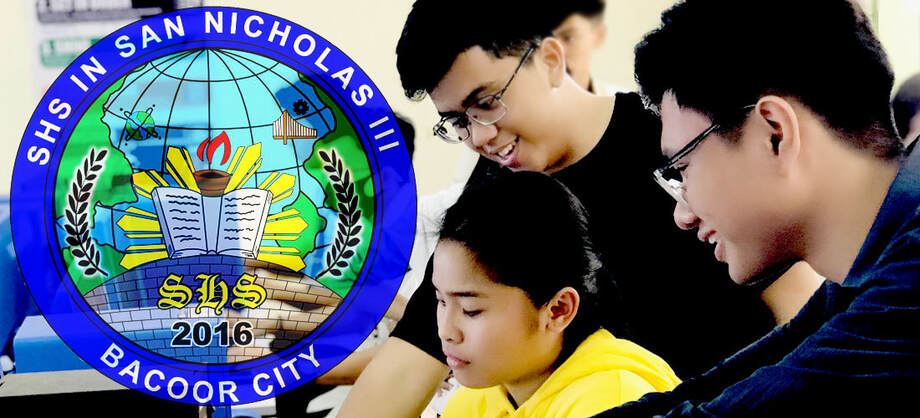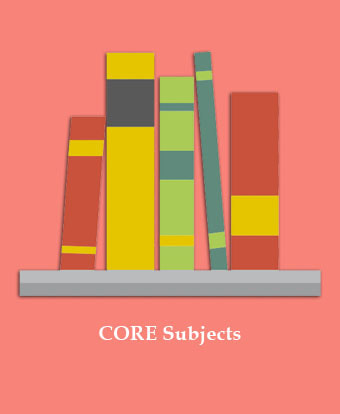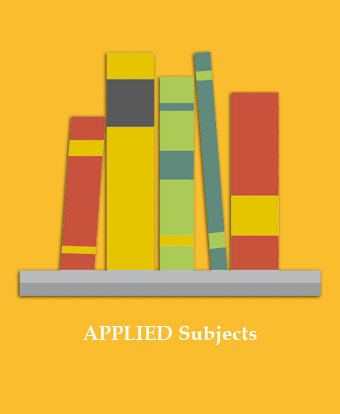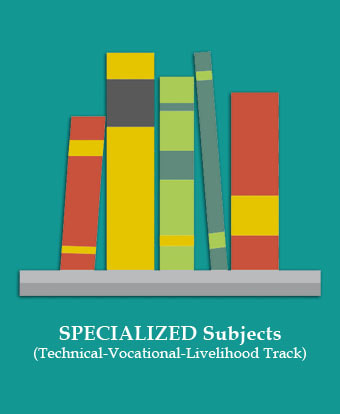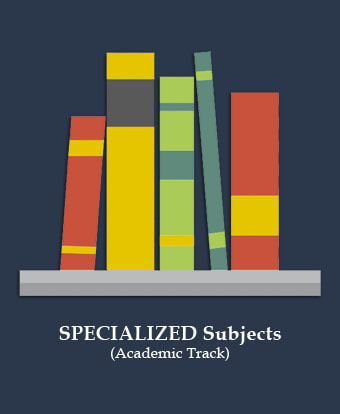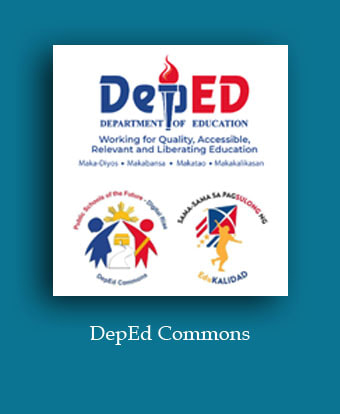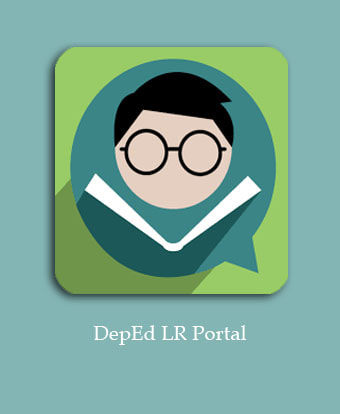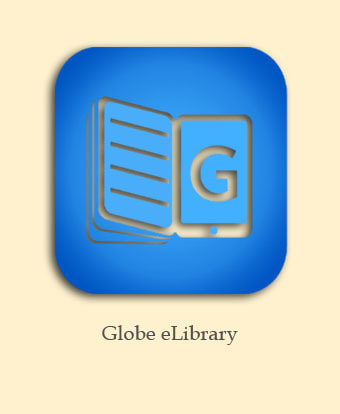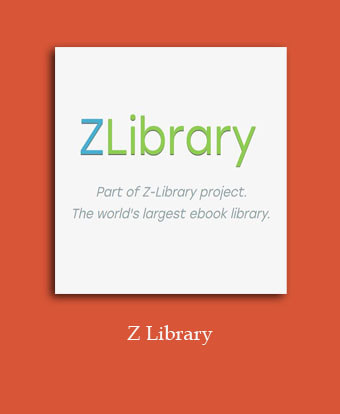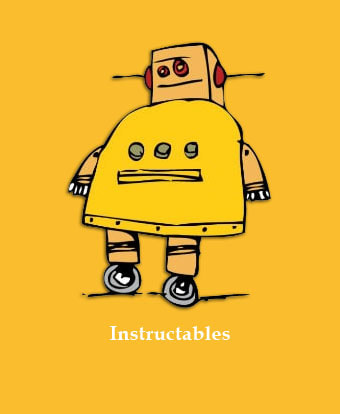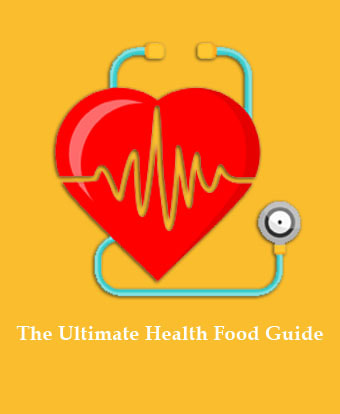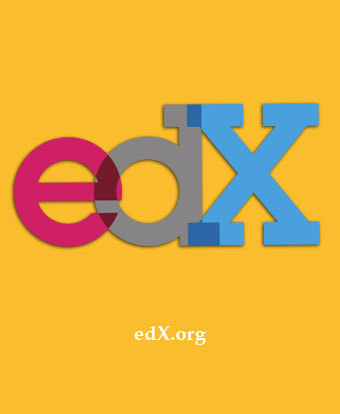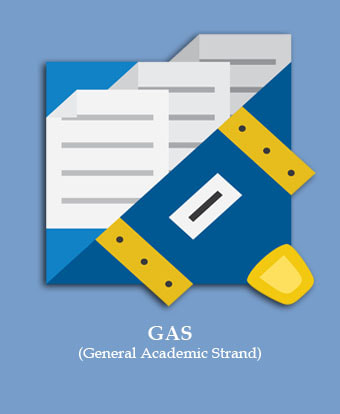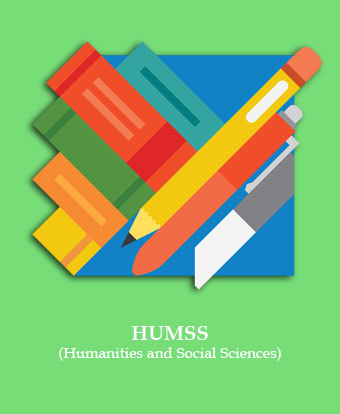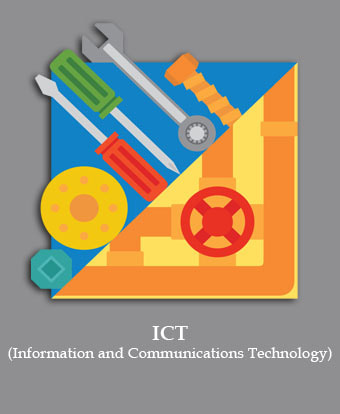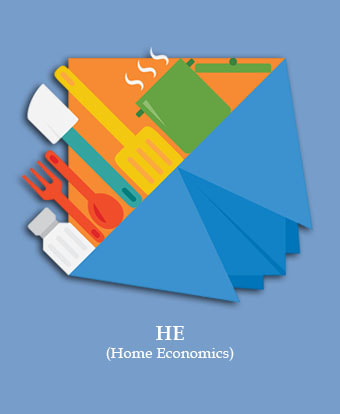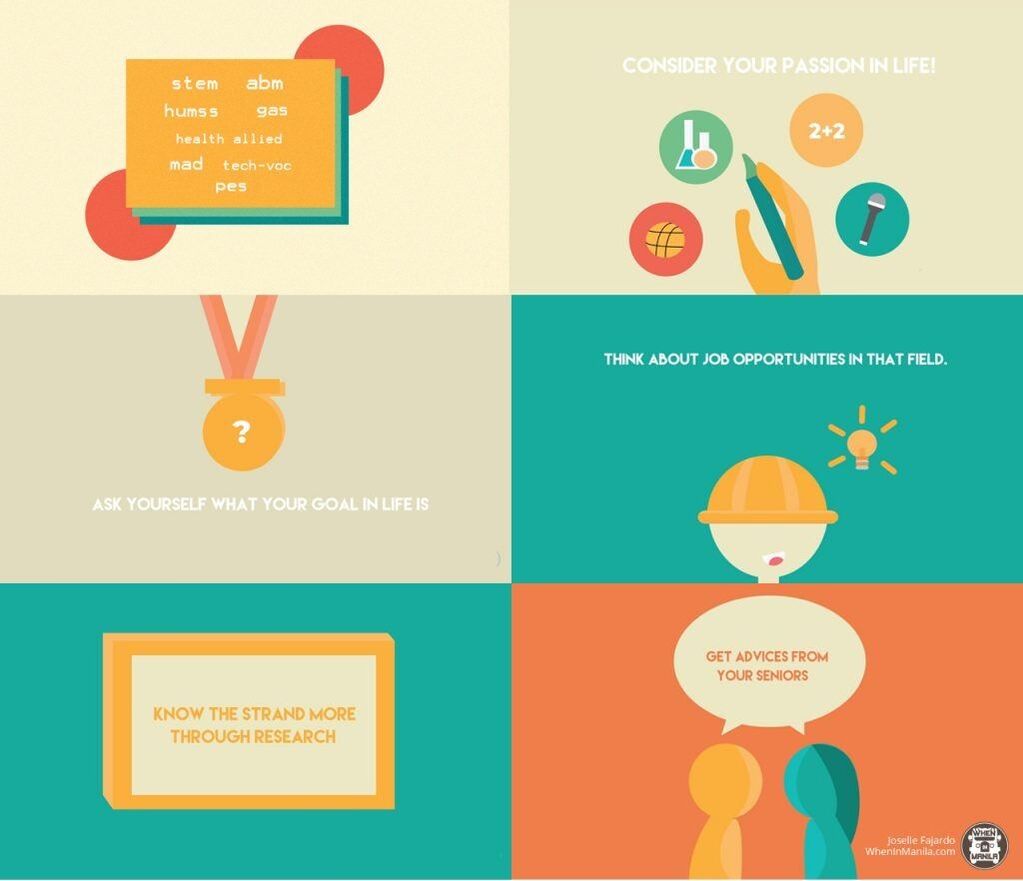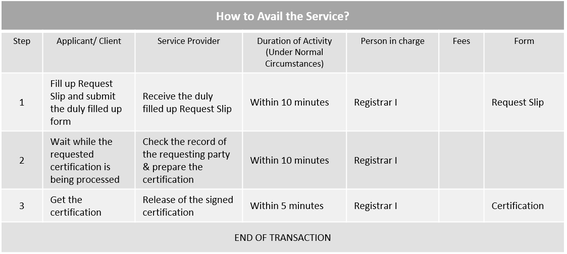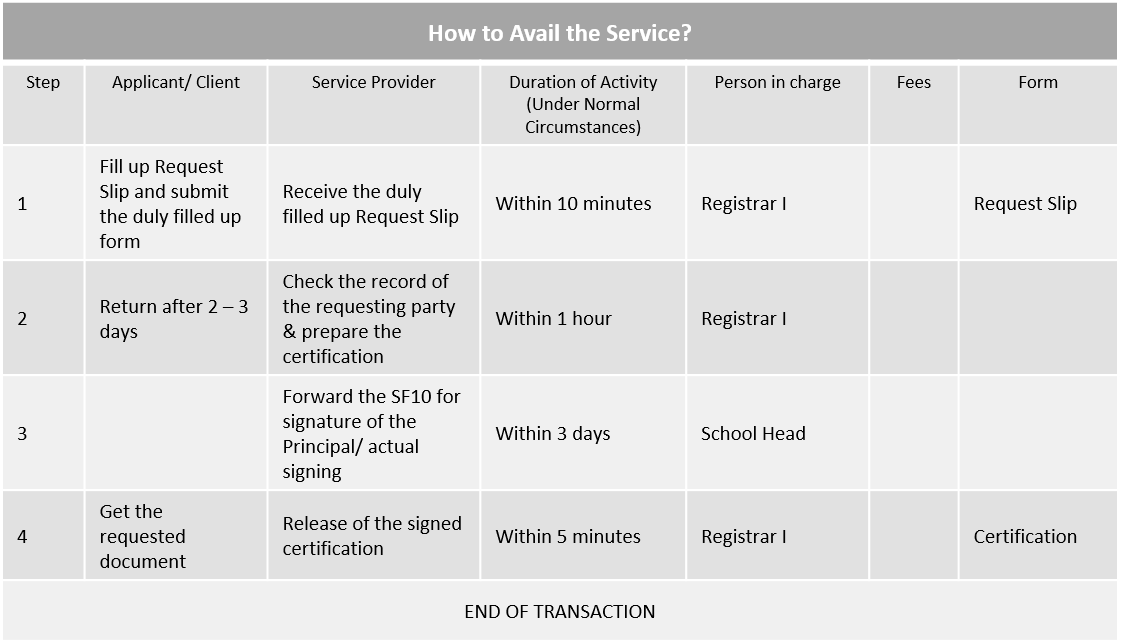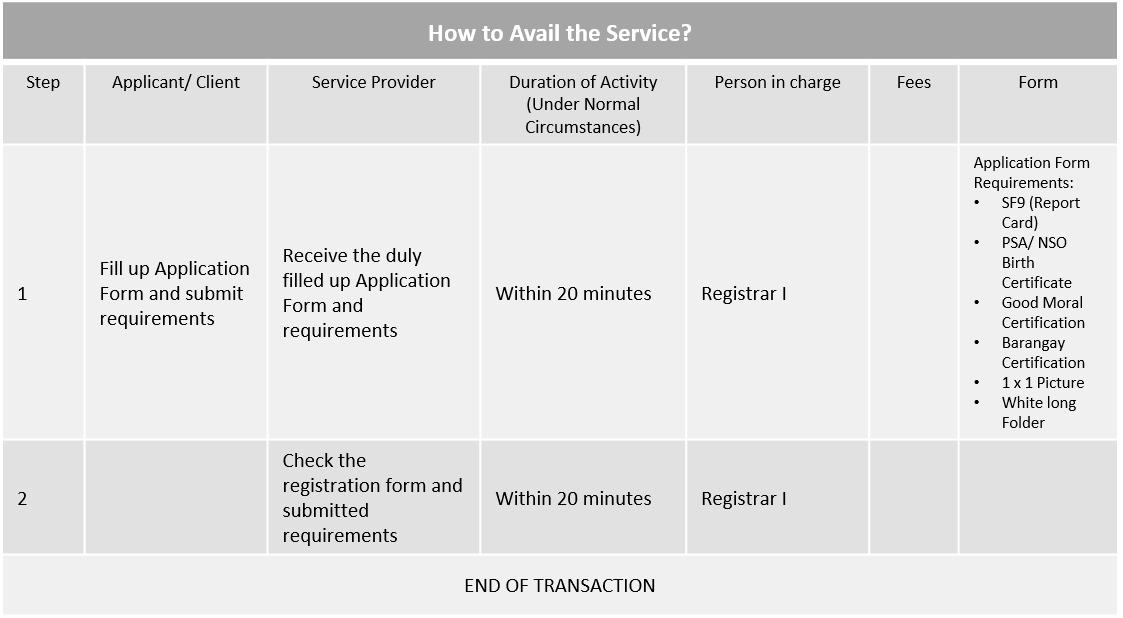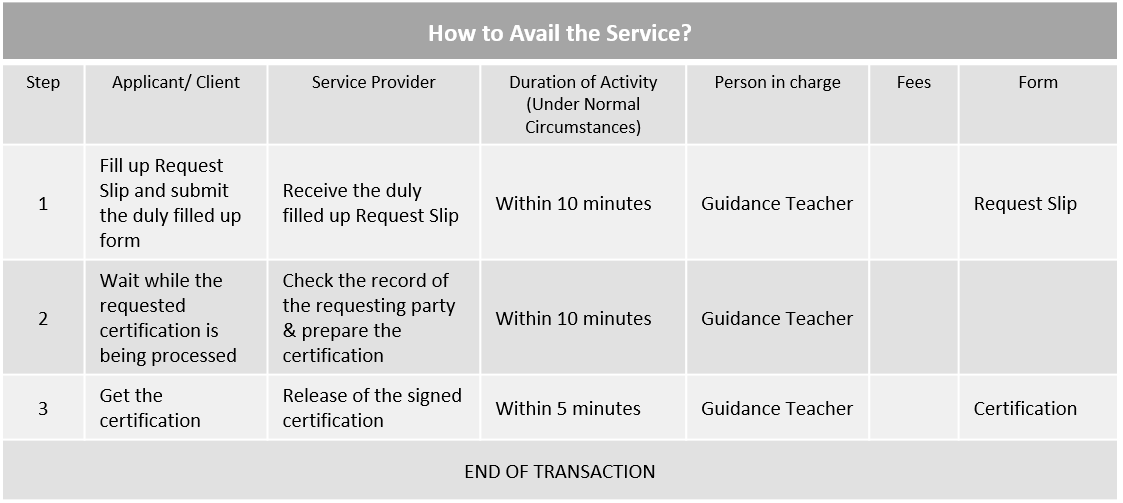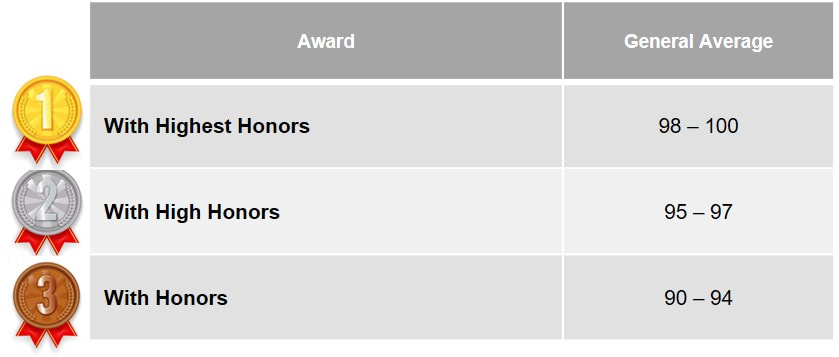STUDENT E-PORTAL
Student Portal is a specially designed web page that helps to bring information together from different sources in a uniform way which is useful for learners to choose right information.
curriculum guides & MOST ESSENTIAL LEARNING COMPETENCIES (MELC)
Click the image and it will redirect you to the full list of subjects.
|
Subjects that all SHS students will take regardless of their chosen career track or learning strand.
|
Subjects that all SHS students will take and are designed to focus on the specific applications of certain subjects on the student's chosen career track or learning strand.
|
Subjects that are unique to the career track or learning strand that the student chose.
|
Subjects that are unique to the career track or learning strand that the student chose.
|
list of free online resources
Massive Open Online Course (MOOC)
A massive open online course (MOOC) is a free Web-based distance learning program that is designed for the participation of large numbers of geographically dispersed students run online by many universities worldwide.
|
TESDA Online Program (TOP) is an open educational resource that aims to make technical education more accessible to Filipino citizens through the use of information and communication technologies. TOP provides an effective and efficient way to deliver technical education and skills development services to a broader audience/wide range of users/all learners at a lesser cost. Click e-tesda.gov.ph link to redirect you to the website. |
|
eDx.org is an online learning destination and MOOC provider, offering high-quality courses from the world's best universities and institutions to learners everywhere. Click edx.org link to redirect you to the website. Courses are free but you will have to pay to receive a degree. |
|
Coursera Inc. is an online education provider that offers students access to massive open online courses (MOOCs), specializations, and even degrees. Click coursera.org link to redirect you to the website. Courses are free but you will have to pay to receive a degree. |
SENIOR HIGH SCHOOL TRACKS/ STRANDS
Senior high school or SHS refers to the last two years of the K to 12 program that has been implemented by the Department of Education here in the Philippines since 2012 – namely, grades 11 and 12. Students are now required to choose their preferred senior high strands upon their entrance and to begin studying the subjects that are going to introduce them to the career path that they want to take.
Upon enrollment in SHS in San Nicholas III, Bacoor City, students are also going to have to pick among the offered tracks/ strands. Choosing the right strand is one of the biggest decisions you a student is going to have to make, so read on and find out how you can best make this choice.
Upon enrollment in SHS in San Nicholas III, Bacoor City, students are also going to have to pick among the offered tracks/ strands. Choosing the right strand is one of the biggest decisions you a student is going to have to make, so read on and find out how you can best make this choice.
Academic Track
If you are one of those who have their minds set towards their college education. It is divided into courses that are specific to each degree.
|
This strand might be for you if you are not yet sure what course you want to take in college. This strand teaches you Humanities, Management and Disaster Readiness, Economics, and Social Science.
|
This strand is for students who are planning to take up Writing (novelists in particular), Sociology, Community Studies, Law, and Political Science. Those who want to take up Priesthood also tend to choose this strand.
|
Technical-Vocational-Livelihood Track
The TVL track calls out to students that are eligible since its subjects are more focused on job-ready skills. Aside from that, it also offers students practical knowledge along with the TESDA National Certification to help students land their dream job after they graduate from senior high school.
|
The ICT strand is the perfect choice for you if you are interested in computer software and hardware. Here, you will be taught how to create websites, write computer programs, PC hardware and software troubleshooting, and computer networks. This strand typically includes Computer Programming and Computer Systems Servicing NCII that leads to TESDA National Certification.
|
Students who are interested in cooking, food and beverage services, tourism, bread and pastry services, and housekeeping should take this strand that leads to TESDA National Certifications.
|
Are you on the right track/ strand?
school OFFICES AND ITS services
The duties and responsibilities in each office is based on DepEd Order No. 19 series 2016 also known as "Guidelines on the Organizational Structures and Staffing Patterns of Stand-Alone and Integrated Public Senior High Schools (SHS)".
Registrar's Office
The Office of the Registrar headed by Miss Maria Abegail G. Gonzales, Registrar I, do the following functions and responsibilities:
The Office of the Registrar is located at Building 1 (Admin Building ), Room 102 (beside the Principal's Office).
- receives, updates and maintains the records, reports and documents of the school, its staff and learners;
- manages and updates the Learner Information System (LIS);
- ensures an efficient process of registration and enrollment;
- facilitates the process of releasing records of the school, staff and learners to the necessary institutions; and
- reports to the Assistant Principal for Operations and Learner Support and/or Principal/School Head.
The Office of the Registrar is located at Building 1 (Admin Building ), Room 102 (beside the Principal's Office).
Issuance of Certificate of Enrolment, GWA Certification and Diploma
Issuance of School Form 10 (Form 137)
Enrolment Service and Procedures
Guidance Office
The Guidance Office headed by Mr. Ismael T. Santos, Master Teacher II and Mrs. Villy P. Espago, Teacher II,
do the following functions and responsibilities:
The Guidance Office is located at Building 2, Room 201.
do the following functions and responsibilities:
- provides and implements guidance and counseling services for the learners of the schools within a division, which includes counseling, psychological testing, learning and study orientation, research, and career guidance and advocacy; and
- reports to the Assistant Principal for Operations and Learner Support and/or Principal/School Head, as well as the School Governance and Operations Division (SGOD) at the Schools Division Office (SDO).
The Guidance Office is located at Building 2, Room 201.
Issuance of Certificate of Good Moral Character
School Clinic
The School Clinic headed by Mrs. Janelle I. San Jose, Nurse II, do the following functions and responsibilities:
The School Clinic is located at Building 1 (Admin Building), Room 102 (beside the Office of the Registrar).
- provides health and nutrition services to the schools within a division;
- assists in the implementation of the school’s health and nutrition program; and
- reports to the Assistant Principal for Operations and Learner Support and/or Principal/School Head, as well as the School Governance and Operations Division (SGOD) at the Schools Division Office (SDO).
The School Clinic is located at Building 1 (Admin Building), Room 102 (beside the Office of the Registrar).
Youth Formation Office
The Youth Formation Office headed by Mr. Glen Tee Jay A. Jarito, Teacher III, and assisted by Mrs. Lily Beth V. Galang, Teacher III, do the following functions and responsibilities:
The Youth Formation Office is located at Building 1 (Admin Building), Room 102 (beside the Office of the Registrar).
- manages the youth formation programs of the schools within a division, including but not limited to the implementation of the Supreme Pupil Government (SPG) or Supreme Student Government (SSG) as well as other co-curricular and extra-curricular clubs and programs;
- manages and monitors the implementation of the career guidance program in senior high schools; and
- reports to the Assistant Principal for Operations and Learner Support and/or Principal/School Head, as well as the School Governance and Operations Division (SGOD) at the Schools Division Office (SDO).
The Youth Formation Office is located at Building 1 (Admin Building), Room 102 (beside the Office of the Registrar).
School Library
The School Library headed by Dr. Alma Teresa A. Corpuz, Master Teacher II and assisted by Mrs. Florabel B. Jacinto, Teacher III, do the following functions and responsibilities:
The School Library is located at Building 5 (ICT Building), Room 101 (beside the Faculty).
- responsible for the overall management of the school library;
- ensures efficient and effective access to learning resources for individual teachers and students, as well as scheduled visits by class groups;
- monitors the use of the library;
- coordinates with the designated property custodian as well as the Assistant Principal for Operations and Learner Support and/or Principal for the selection, acquisition, organization and maintenance of reference and reading materials; and
- reports to the Assistant Principal for Operations and Learner Support and/or Principal/School Head.
The School Library is located at Building 5 (ICT Building), Room 101 (beside the Faculty).
Computer Laboratory
The Computer Laboratories headed by Mr. Roi M. Francisco, Teacher II and assisted by Mr. Ryan E. Roy, Teacher II and Mr. Jemuel Jay Ybañez, Teacher III, do the following functions and responsibilities:
The Computer Laboratories are located at Building 5 (ICT Building),
- coordinates with the Assistant Principal for Academics and/or Principal for the schedule of ICT classes corresponding to the use of the ICT laboratory;
- monitors the use of the ICT laboratory;
- coordinates with the designated property custodian as well as the Assistant Principal for Operations and Learner Support and/or Principal on the purchase, maintenance and inventory of ICT equipment, software licenses and virus protection software for the school; and
- reports to the Assistant Principal for Operations and Learner Support and/or Principal/School Head.
The Computer Laboratories are located at Building 5 (ICT Building),
- Room 201 DCP Laboratory 1 composed of 50 network computers;
- Room 202 DCP Laboratory 2 composed of 50 stand-alone desktop computers;
- Room 204 E-learning Laboratory composed of 25 stand-alone dekstop computers.
GRADING SYSTEM & AWARDS
Grading System
The K to 12 Basic Education Program uses a standard- and competency-based grading system. The minimum grade needed to pass a specific learning area is 60, which is transmuted to 75 in the report card. The lowest mark that can appear on the report card is 60 for Quarterly Grades and Final Grades.
Learners from Grades 11 to 12 are graded on Written Work, Performance Tasks, and Quarterly Assessment every quarter. These three are given specific percentage weights that vary according to the nature of the learning area. For Grades 11 and 12, the two quarters determine the Final Grade in a semester.
Learners from Grades 11 to 12 are graded on Written Work, Performance Tasks, and Quarterly Assessment every quarter. These three are given specific percentage weights that vary according to the nature of the learning area. For Grades 11 and 12, the two quarters determine the Final Grade in a semester.
In consideration to the nature of the subject, a student’s grade is based on the following:
Reference: DepEd Order No. 8 series 2015 Policy Guidelines on Classroom Assessment for the K to 12 Basic Education Program
- Written Works. These include the following: quizzes, unit or long tests, assignments, article reviews, journals, reaction/reflection papers, etc.
- Performance Tasks. These include student-designed experiments, hands-on exercises /skills demonstration, multimedia presentations, live dioramas, research paper/investigatory projects with oral defense, debates, speech tests, panel discussions, issue awareness campaigns, practical tests, simulations, collages, leaflets, posters, and slogan making, community involvement, musical presentation and creating simple musical arrangement, physical activity participation, fitness assessment, and layout outputs/diagnose and repair equipment.
- Quarterly Assessment. These include periodical exams, exhibits, portfolio, practical tests, and major skill tests.
Reference: DepEd Order No. 8 series 2015 Policy Guidelines on Classroom Assessment for the K to 12 Basic Education Program
Awards & Recognition
Classroom-Based Recognition
- Certificates are awarded to students by the adviser and/or other subject teachers in acknowledgement of the students’ exemplary performance in class. (e.g. Perfect Attendance, etc.)
- The classroom adviser presents the list of achievers based on the computed average at the end of each quarter and/ or semester, and it is thoroughly reviewed.
- Academic Excellence Awards are given at the end of each quarter and/ or semester for students who meet the following criteria below and they will receive certificates during Parent and Teacher Conference.
End of School Year Recognition
Medals and Certificates are awarded to students who have shown exemplary performance in Curricular, Co-Curricular, and Extra-Curricular Programs after a thorough deliberation.
Academic Awards are given based on a student’s final grades at the end of the school year. The Grade-level awards are listed below:
To see the criteria in each award, refer to Deped Order No. 36 series 2016 Policy Guidelines on Awards and Recognition for the K to 12 Basic Education Program.
There is an Awards Committee (AC) to determine the awardees:
The School Head shall organized the awards committee composed of the following:
The chairperson of the AC could be any of the teachers, department head, grade-level chairperson, or curriculum head. No member of the AC must be related within the second degree of consanguinity or affinity to any of the candidates for awards.
The AC shall use the report cards and permanent records as the main reference for Academic Excellence Awards. For other awards, a portfolio of copies of all documents such as DepEd Advisories, written authorization from the school head or principal, certificates, medals, trophies, plaques, accomplishment reports (verified through certifications by proper authorities), and others shall be presented.
Academic Awards are given based on a student’s final grades at the end of the school year. The Grade-level awards are listed below:
- Academic Excellence Award
- Leadership Award
- Award for Outstanding Performance in Specific Disciplines (Athletics, Arts, Communication Arts, Science, Mathematics, Social Sciences, and Technical-Vocational Education)
- Award for Work Immersion
- Award for Research or Innovation
- Award for Club or Organization Achievement
- Special Recognition
To see the criteria in each award, refer to Deped Order No. 36 series 2016 Policy Guidelines on Awards and Recognition for the K to 12 Basic Education Program.
There is an Awards Committee (AC) to determine the awardees:
The School Head shall organized the awards committee composed of the following:
- three (3) members from the teaching staff
- guidance teacher/ counselor or designated teacher
The chairperson of the AC could be any of the teachers, department head, grade-level chairperson, or curriculum head. No member of the AC must be related within the second degree of consanguinity or affinity to any of the candidates for awards.
The AC shall use the report cards and permanent records as the main reference for Academic Excellence Awards. For other awards, a portfolio of copies of all documents such as DepEd Advisories, written authorization from the school head or principal, certificates, medals, trophies, plaques, accomplishment reports (verified through certifications by proper authorities), and others shall be presented.
CLASS SCHEDULE
GRADE 11 SUBJECTS
First Semester
- Oral Communication
- Komunikasyon at Pananaliksik sa Wika at Kulturang Filipino
- Earth and Life Science
- General Mathematics
- Understanding Culture, Society and Politics
- Introduction to World Religion
- Physical Education 1 (PE)
- Empowerment Technologies
- ICT - Programming
- ICT - Computer Systems Servicing NCll
- Home Economic - Food and Beverages Services NCll
Second Semester
- Reading and Writing Skills
- Pagbasa at Pagsusuri ng iba't - ibang Teksto Tungo sa Pananaliksik
- Statistic Science
- Physical Education and Health 2
- Media and Information Literacy
- Entrepreneurship
- Practical Research 1
- Computer Programming
- Discipline and Ideas in the Social Sciences
- Applied Economics
- Bread and Pastry Production (NCll)
GRADE 12 SUBJECTS
First Semester
- Personal Development
- Introduction to the Philosophy of the Human Person
- Practical Research 2
- Creative Writing
- Business Ethics & Social Responsibility
- Community Engagement, Solidarity and Citizenship
- Discipline and Ideas in the Applied Social Sciences
- Organization and Management
- Disaster Readiness and Management
- Philippine Politics and Governance
- Physical Education 3 (PE)
- ICT - Programming (JAVA)
- ICT - Computer System Servicing NCll (3)
- HE - Cookery NCll
- HE - Front Office Services
- 21st Century Literature from the Philippine and the World
Second Semester
- Contemporary Philippines Arts from the Religions
- Physical Education 4
- English for Academic and Professional Purposes
- Filipino sa Piling Larang
- Inquiries, Investigations and Immersion
- Computer Programming JAVA
- Computer System Servicing NCll (4)
- Trends, Networks, And Critical Thinking in the 21st Century Culture
- Creative Nonfiction
- General Biology
- Cookery
- House Keeping
- Work Immersion
Core Subjects
- 21st Century Literature from the Philippines and the World
- Disaster Readiness and Risk Reduction
- Earth and Life Science
- General Mathematics
- Health Optimizing Physical Education
- Komunikasyon at Pananaliksik sa Wika at Kulturang Pilipino
- Oral Communication Context
- Pag-asa at Pagsusuri sa iba't - ibang teksto tungo sa Pananaliksik
- Personal Development
- Physical Science
- Reading and Writing Skills
- Statistic and Probability
- Understanding Culture Society and Politics
- Media and Information Literacy
Applied Subjects
- Inquiries, Investigations and Immersion
Specialized Subjects
- Creative Nonfiction
- Creative Writing
- Culminating Activity
- Organization and Management
- Trends, Networks, And Critical Thinking in the 21st Century Culture
